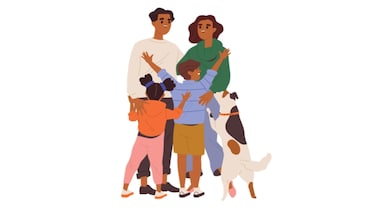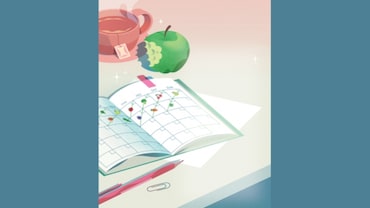- HOME
- /
- Better Living
- /
- Parenting
- /
Ask an Expert: Does my Baby Know I'm Reading to Her?
We asked certified infant and child sleep specialist, Himani Dalmia, for answers
 Shutterstock
Shutterstock
How exactly does reading benefit kids?
Reading to babies and toddlers is often referred to as a ‘keystone habit’, that elite category of practices that kick off a positive effect in multiple areas of our lives. Not only does reading lay a solid foundation for the parent–child bond, it also helps a child become smarter, kinder. It stimulates parts of the brain that process language. Just 15 minutes a day (and there is no maximum) of this joyous, fulfilling activity offers magical gifts to our children, from higher cognition and better attention spans to greater creativity and the ability to form deeper relationships.
Books help to foster social and communication skills and develop both emotional empathy (experiencing the reactions of another) and cognitive empathy or theory of mind (adapting to another’s viewpoint). Reading together builds their ability to practise ‘joint attention’, an important milestone where the child shares focus with someone else, and participates in a collective experience.
Finally, stories are powerful therapeutic tools that can help children process events like starting school or the arrival of a new sibling or the death of a loved one. They give children an emotional vocabulary with which to make sense of their big feelings, make them feel ‘seen’ and validated, and provide an opportunity to talk about these subjects with their parents. Not to mention they are a far more effective alternative to screentime for toddlers!
What’s the right age I can start reading aloud to my baby?
It is possible to read books to the youngest of babies, even those in utero. Unborn babies can tune in to the rhythm and cadence of our voices at six months or 24 weeks. Newborns start to understand how words and sentences fit together as language networks, mental pictures and visual connections begin to form in their brains. In fact, early reading by parents is intricately linked to later literacy skills. The sheer volume of words, the breadth of language and the association with pictures transferred through a reading activity can never be replicated as well solely through conversation. Pre-reading skills—like knowing that we read a language like English from left to right, that words on a page have meaning, that they are made up of letters and so on—are learnt through early read-alouds.
How do I choose the right books for children?
It is important to choose books with high-quality visual and literary content. The idea behind reading is not academic or didactic. The idea is to tap into the natural human love for stories and to nurture a love for books organically because the act is so joyful and rewarding. Books should not be intended to teach or indoctrinate but to stimulate and inspire, to encourage exploration and enquiry. Picture books spark a child’s imagination and stimulate their curiosity. High quality visual art by master illustrators develop a complex and nuanced visual literacy which is fast gaining even greater importance in a media-driven world.
Is bedtime reading sessions more impactful than others?
Sharing books while snuggling before naps or night sleep is a practice that can begin from infancy itself, and creates a habit that lasts a lifetime. Books are a wonderful signal to the child that it’s time to unwind. Reading acts as a bridge between energetic, fast-paced action and slowing down, between the world outside the bedroom and the land of dreams, between outer and inner worlds. It makes the transition to sleep enjoyable, not something to be detested and resisted. It also builds an immovable ‘slot’ for reading into your daily schedule—a happy time when books represent connection with the parent. So, not only is the reading soothing, the feeling of being soothed conversely makes reading a cherished activity and helps to build a love for books.
How to choose books for your child:
- Look for high quality children’s literature, like modern picture books, with good writing and beautiful artworks. Checking the reputation and background of the publisher, the author and the illustrator can help.
- Check blogs and online communi-ties dedicated to children’s books, or visit bookstores with knowledgeable owners or staff, who can curate and recommend titles.
- Avoid books that have an academic purpose like teaching children to read. That will come in its own time. Focus on the pleasure that comes from literature and art.
- Be careful with traditional yarns, such as fairy tales, moral stories, mythology, some of which may contain content that can be scary, violent, racist or sexist.
- Follow your child’s lead. If they like a particular author or illustrator, source more books by the same person. If they are going through a phase of being fascinated by lions or trucks, source books on those themes.
About the expert: Himani Dalmia is the author of the children’s picture book, Thammi’s Gift (HarperCollins India), and co-author of Sleeping Like A Baby (Penguin India). She is also the co-founder of ‘Gentle Baby Sleep India’, a peer-to-peer support group on infant and toddler sleep.






